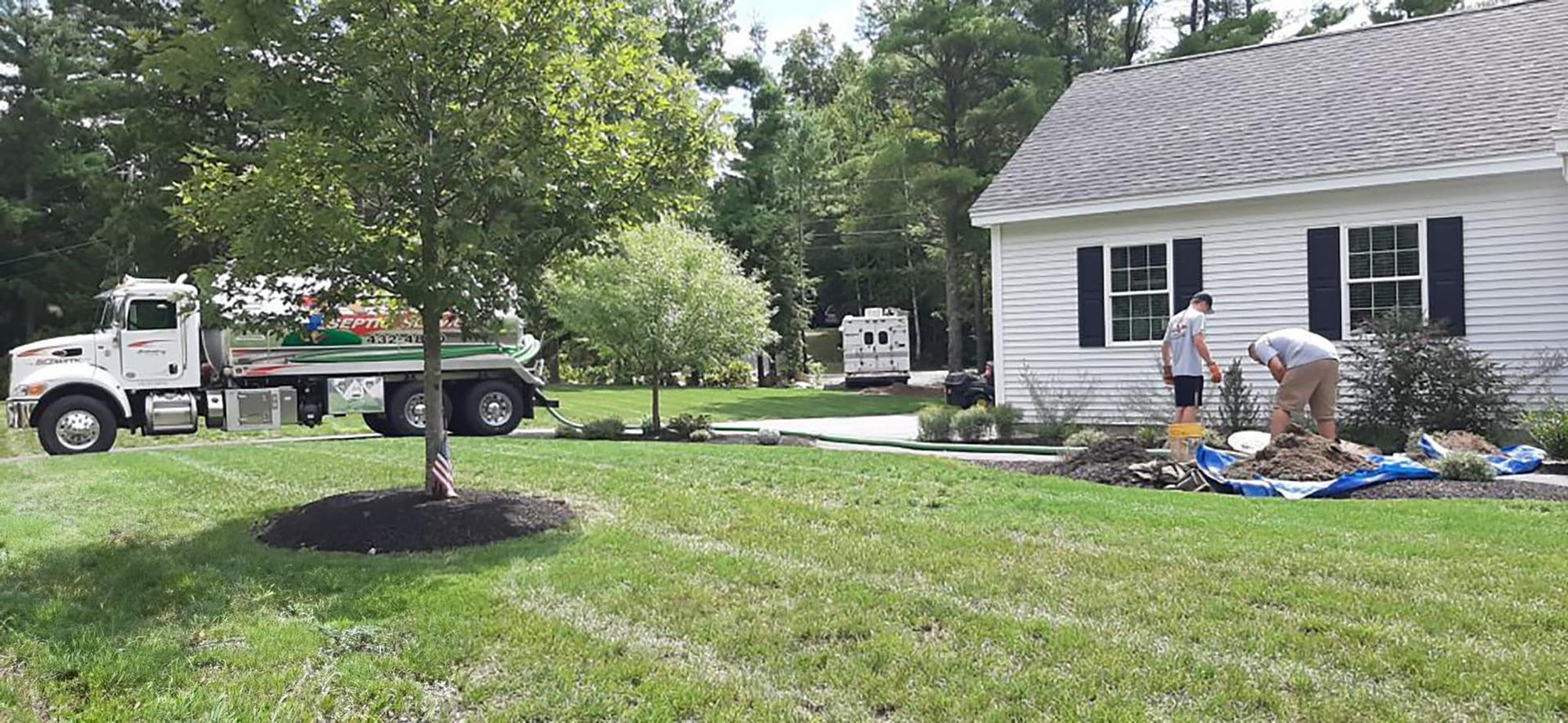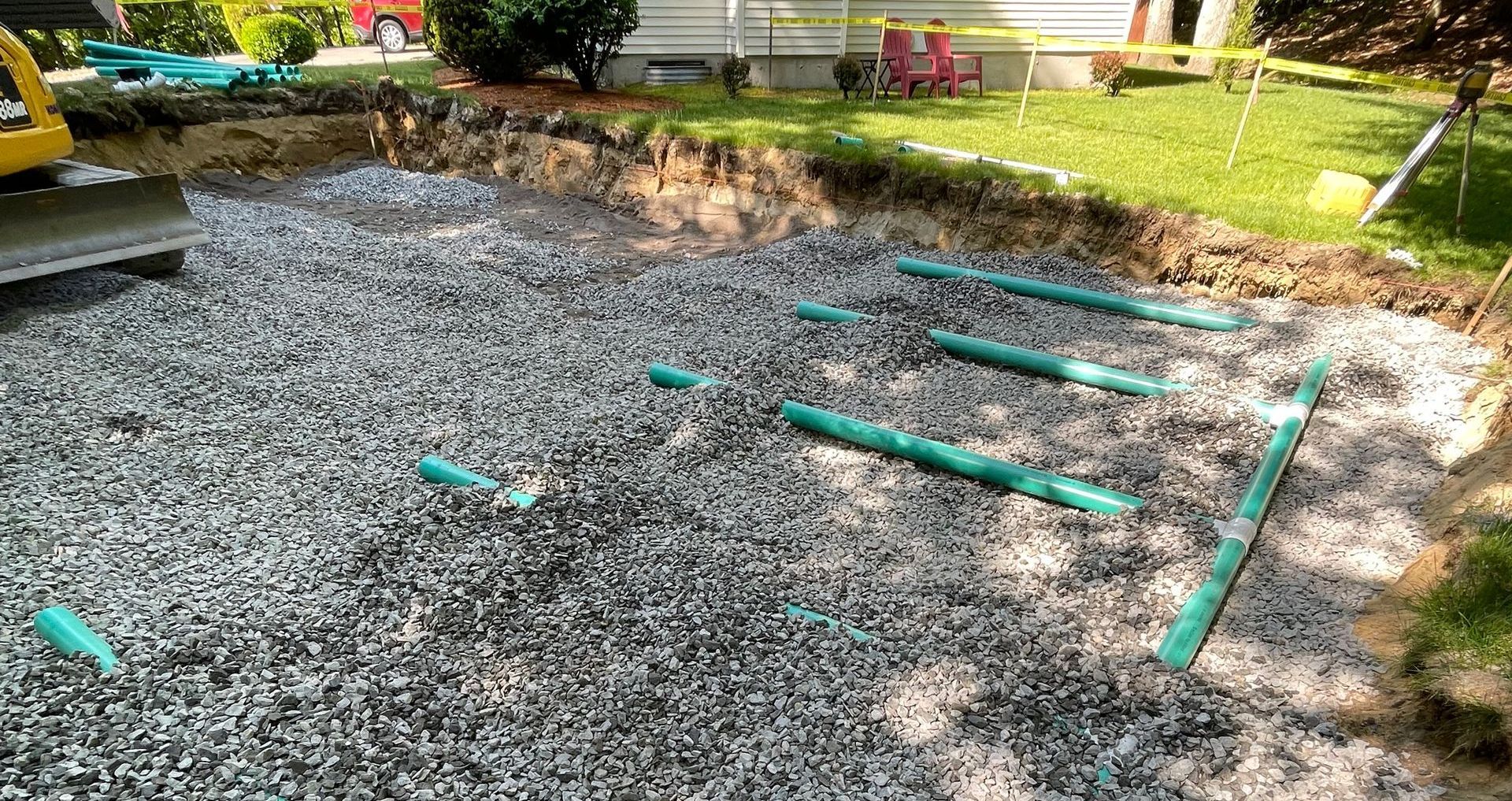The Homeowner's Guide to Septic System Services in Spring: Surviving New Hampshire's April Showers
Part 1: Understanding and Preparing Your Septic System for Spring
As New Hampshire welcomes the thaw of winter, homeowners contemplate tasks such as spring cleaning and airing out rooms inside their homes. Outside their homes they contemplate raking, thatching and preparing their lawns for the upcoming spring season. This is also a good time to remember pumping/cleaning your septic tank as the warmer weather approaches.
Understanding Septic System Services
A septic system is an underground wastewater treatment structure consisting of a septic tank and a drainfield. The system was installed two feet above the seasonal high water table and if operating properly will function well with the melting of any snow and the usual rain showers that April and May tend to bring. To grasp the basics of how septic systems function and their components, visiting the Environmental Protection Agency (EPA) - Septic Systems Overview provides a wealth of information.
The University of New Hampshire Cooperative Extension - Managing Your Septic System also offers detailed guidance homeowners can take to safeguard their septic systems.
Preventative Maintenance Steps
To prepare your septic system for the spring season, consider the following preventative maintenance steps:
- Pumping: If it’s time for your septic tank to be pumped, spring is the perfect reminder to schedule this service.
- Inspections: When we pump/clean your septic tank, we perform a visual inspection of your septic system and leave you with a completed service order form.
- Clearing the Area: Homeowners should know the location of their leach field and assure it is clear from debris and deep root growing plants/trees.
Septic System Services for Spring in New Hampshire
The key services that are particularly beneficial in spring include pumping, visual inspections, and cleaning of effluent filters. Early spring maintenance will give the homeowner peace of mind that their system is operating properly.
In conclusion, understanding the system’s components and how they are affected by seasonal changes is the first step. Taking proactive measures, such as scheduling a pre-spring check-up and ensuring your system is clean and functioning correctly, can help avoid common problems associated with the rainy season. With proper care and maintenance, your septic system can continue to serve your home efficiently and effectively throughout the spring and beyond.

Part 2: Maintenance, Problems, Solutions, and FAQs
Spring in New Hampshire brings not just the beauty of blooming landscapes but also a good reminder to pump, clean and take care of your septic system. This section delves into the essential maintenance routines and solutions to ensure the septic system remains functional and effective.
Springtime Septic System Maintenance
Routine maintenance is key for the longevity and efficiency of your septic system.
- Inspect and Pump Regularly: Ensure your septic tank is pumped at the intervals recommended by professionals. This prevents the sludge and scum from escaping into the drainfield and causing blockages.
- Be Mindful of Water Use: Spring often means more water usage; however, spreading out laundry days and fixing any leaks can significantly reduce the risk of overloading your septic system.
Maintaining your septic system in spring requires a proactive approach. Regular checks and balances assure that your system is functioning properly. For a deeper dive into maintenance tips, the National Environmental Services Center (NESC) - Septic System Maintenance offers comprehensive resources to guide homeowners through the process.
-
How often should my septic tank be pumped in New Hampshire?
The frequency of septic tank pumping varies based on the size of your tank and household. Generally, we recommend yearly for households of 5 or more, every 2 years for 3-4, and every 3 years for households of 1-2 people.
-
What are the signs of septic system failure in spring?
Signs of septic system failure include unpleasant odors, water pooling in the yard, and slow draining toilets or drains. If you notice any of these signs, it's crucial to contact a professional immediately to assess and address the issue.
-
Can heavy rain affect my septic system?
Heavy rain should not affect your properly functioning septic system. A septic system is installed two feet above the seasonal high-water table. When a septic system is designed a test pit is dug and perc tests are done at the property to assure it is installed in the correct location.
For more detailed answers to these and other frequently asked questions, homeowners are encouraged to seek out resources like the University of New Hampshire Cooperative Extension - Managing Your Septic System, which provides targeted advice for maintaining septic systems in the unique New Hampshire climate.
FAQs on Septic System Services in Spring
Environmental Considerations and Sustainable Practices
Ensuring the health of your septic system is not just about maintaining property value or preventing inconvenient backups; it's also about protecting the environment. Properly functioning septic systems prevent contaminants from entering groundwater, rivers, and lakes, contributing to the overall health of the ecosystem. Adopting sustainable practices, such as conserving water, using septic-safe products, and regular maintenance, can make a significant difference in the environmental footprint of your septic system.
RCI Septic Service is here to help!
As we wrap up our guide to surviving New Hampshire's April showers with a fully functional septic system, it's clear that proactive maintenance and a commitment to sustainable practices are key to navigating the season without incident. By taking the steps outlined in this guide, homeowners can ensure their septic systems remain a reliable and environmentally friendly aspect of their property.
Remember, the health of your septic system is in your hands. Schedule your spring maintenance check today and embrace the coming season with confidence.
All Rights Reserved | RCI Septic Service


